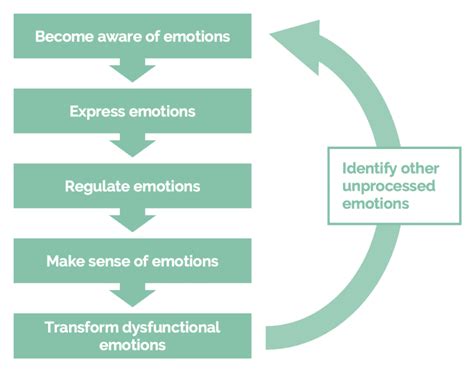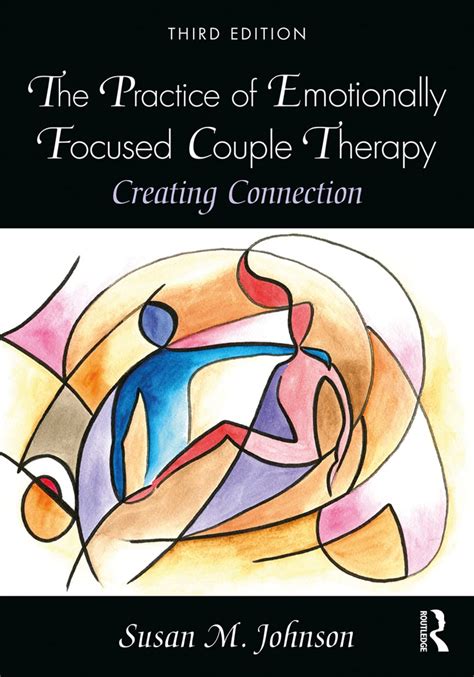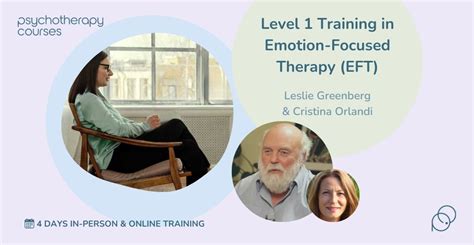Intro
Discover Emotionally Focused Therapy, a proven approach to healing relationships through emotional attachment, intimacy, and couples therapy, improving communication and bonding.
Emotionally Focused Therapy, or EFT, has become a widely recognized and effective approach to treating relational issues and promoting emotional well-being. Developed by Sue Johnson and Leslie Greenberg, EFT is based on the idea that emotions play a central role in shaping our experiences and interactions with others. By focusing on the emotional aspects of relationships, EFT aims to help individuals and couples create more secure, resilient, and fulfilling bonds with one another. As we delve into the world of EFT, it becomes clear that this approach has the potential to transform not only our personal relationships but also our overall sense of emotional intelligence and well-being.
The importance of EFT lies in its ability to address the deep-seated emotional needs and desires that underlie human relationships. By exploring and understanding the emotional dynamics at play, individuals and couples can begin to break free from negative patterns and develop more constructive ways of interacting with one another. EFT is not just about resolving conflicts or improving communication skills; it's about creating a deeper sense of emotional connection and intimacy that can lead to more meaningful and lasting relationships. As we explore the principles and practices of EFT, it becomes clear that this approach has far-reaching implications for our emotional and relational lives.
The concept of EFT is rooted in attachment theory, which suggests that our early experiences with caregivers shape our expectations and behaviors in relationships throughout our lives. By recognizing and working with these attachment patterns, EFT therapists can help individuals and couples develop more secure and resilient attachment styles, leading to greater emotional stability and relationship satisfaction. Whether we're seeking to improve our romantic relationships, strengthen our family bonds, or simply develop greater emotional awareness, EFT offers a powerful and compassionate approach to achieving these goals. With its emphasis on emotional intelligence, empathy, and connection, EFT has the potential to transform not only our relationships but also our very sense of self and well-being.
Understanding Emotionally Focused Therapy

Key Principles of EFT
The key principles of EFT can be summarized as follows: * Emotions are seen as a primary source of information and motivation in relationships * Attachment theory provides a framework for understanding relationship patterns and behaviors * The therapeutic relationship is collaborative and non-judgmental, with an emphasis on empathy and compassion * Change occurs through the process of reorganizing and reprocessing emotional experiences * The goal of therapy is to create a more secure and resilient attachment style, leading to greater emotional stability and relationship satisfactionThe Process of Emotionally Focused Therapy

Benefits of Emotionally Focused Therapy
The benefits of EFT are numerous and well-documented, including: * Improved relationship satisfaction and reduced conflict * Increased emotional awareness and intelligence * Development of more secure and resilient attachment styles * Enhanced sense of empathy and compassion for oneself and others * Greater sense of emotional stability and well-beingEmotionally Focused Therapy in Practice

Case Examples of EFT
The following case examples illustrate the effectiveness of EFT in practice: * A couple seeking to improve their communication skills and reduce conflict * An individual seeking to develop greater emotional awareness and intelligence * A family seeking to strengthen their bonds and improve their overall sense of well-beingTraining and Certification in Emotionally Focused Therapy

Requirements for Certification
The requirements for certification in EFT typically include: * Completion of a graduate degree in a relevant field (e.g. psychology, social work) * Completion of a specified number of hours of training and supervision in EFT * Passing a written and practical exam to demonstrate competence in EFT * Ongoing professional development and continuing education to maintain certificationConclusion and Future Directions

Final Thoughts
In final thoughts, EFT is a highly effective and research-backed approach to therapy that has the potential to transform our relationships and overall sense of well-being. By developing greater emotional awareness, improving our communication skills, and creating more fulfilling and lasting relationships, we can achieve greater emotional stability and relationship satisfaction. Whether we're seeking to address specific relationship issues or simply develop greater emotional intelligence, EFT offers a powerful and compassionate approach to achieving these goals.What is Emotionally Focused Therapy?
+Emotionally Focused Therapy (EFT) is a type of therapy that focuses on the emotional aspects of relationships and helps individuals and couples create more secure, resilient, and fulfilling bonds with one another.
How does EFT work?
+EFT works by helping individuals and couples understand and work with their emotional experiences, identify negative patterns, and develop more constructive ways of interacting with one another.
What are the benefits of EFT?
+The benefits of EFT include improved relationship satisfaction, reduced conflict, increased emotional awareness and intelligence, and a greater sense of emotional stability and well-being.
We hope this article has provided you with a comprehensive understanding of Emotionally Focused Therapy and its potential to transform your relationships and overall sense of well-being. If you have any further questions or would like to learn more about EFT, please don't hesitate to reach out. Share your thoughts and experiences with EFT in the comments below, and let's continue the conversation about the power of emotional connection and intimacy in our lives.
